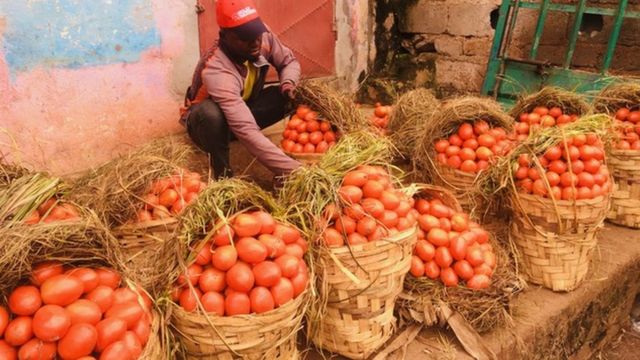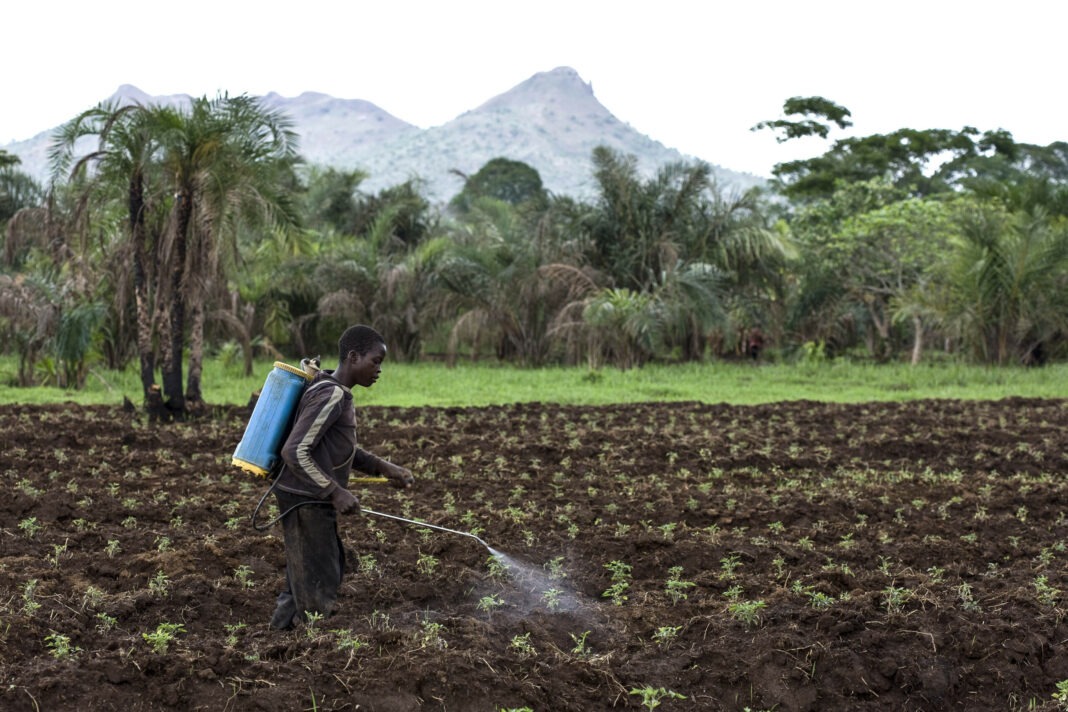CAMEROON. As the largest producer of tomatoes in the Central African Economic and Monetary Community (CEMAC) sub-region, the plummet in tomato prices has created considerable hardship for farmers. The countries within CEMAC make about 720 billion CFA francs, with 140 billion of that yearly number made in the local markets. However, for more than a month now, the prices of these highly perishable fruits have dropped considerably. A basket is now being sold as cheap as 750 CFA francs.
According to farmers that specialize in tomato cultivation, the fall in price is largely blamed on the fact that Cameroon’s borders have been closed to curb the spread of the deadly coronavirus. Countries like Nigeria, Gabon, Congo, Equatorial Guinea, The Central African Republic, and Chad were lucrative markets for the nearly 90 million tons of tomatoes produced annually. Not surprisingly, the border closure has caused a huge amount of tomatoes to rebound into local markets with a significant drop in the price.
Consequently, Cameroon’s major cities like Yaounde, Douala, Bamenda, Bafoussam, and Buea have been flooded with tomatoes.
Farmers plead with the government to provide solutions
The perishable nature of the product and the high cost of production has made it very difficult for farmers. It can take four million CFA francs to cultivate a single hectare of tomatoes. During a good season, that hectare could fetch the farmers between six to seven million CFA francs. Given the difficulties they face, tomatoes farmers have pleaded with the government to be considerate of their plights and open the country’s borders for export.

A revamp of La société Conserveries Alimentaire Du Noun is needed
Created in the early 1990s, the tomato transformation factory constructed in the Noun Division of the West Region of Cameroon was the pride of farmers in the area as it enabled them to transform and preserve the fruits as a paste. The organization had an investment capital of 900 million CFA francs and an annual production capacity of over 25 thousand tons of tomatoes.
Sadly in the year 2000, their doors closed since farmers were unable to match the production capacity that was expected. However, due to the recent agricultural crisis, some farmer associations in the country have made requests for the government to reorganize the firm and reopen the facility in an attempt to avoid further losses.



